PNG election results important recognition for women
07th August, 2012
For women in politics in Papua New Guinea, there’s now a third reason to celebrate. Yesterday it was announced Julie Soso has become the first women elected to parliament for the Highlands region. She’s also the third female to be elected to the country’s next parliament. It’s a stunning reversal of fortunes for women in politics. Earlier in the year a Bill to set aside seats for female MPs failed to pass parliament.
Listen to UNDP Resident Representative in PNG, David McLachlan-Karr speaking to Geraldine Coutts about how these election results are important for women.
MCLACHLAN-KARR: It’s very significant. In Papua New Guinea history since 1975 the most women who’ve ever been in parliament were two; Dame JosephinaAbija and Nahau Rooney way back in 1975. And since then the level of female representation in parliament has basically been decreasing until the last parliament, where we had one representative. This is very significant have three very dynamic women from three very different provinces, and just yesterday of course the election of Julie Soso as Governor of Eastern Highlands province. It’s the first time that has a woman has been elected a governor and in one of Papua New Guinea’s most populous provinces, it’s a very significant result.
COUTTS: It is significant, what did Julie Soso do to be as successful as she has and getting the governorship in the highlands region?
MCLACHLAN-KARR: Indeed, well she’s a community leader, she’s well recognised, but she had a lot of tough competition of course in Eastern Highlands. In this move to a preferential system of voting, rather than first past the post, so now it’s a lot about building alliances if you are to be a successful politician here. A lot of them are also looking into the preferences come up to the final count in the voting. But this is a woman who is recognised I think in her province as being an outstanding leader, and somebody who will deliver on services, which is of course the theme across this past election. People are demanding more of their politicians and demanding services, particularly in health and education for their provinces.
COUTTS: And we’re hearing more and more we’ve had Loujaya Toni on the program and she is outspoken and a very strong leader and she’s saying watch this space, there will be changes, I will do the best for my people and I won’t be having my hand out. And the corruption is going to be worked on by her. So the women are getting very strong voices now, so you think what has been a cultural tradition of having men as the spokesmen and the leaders is turning around?
MCLACHLAN-KARR: I think so. The UN and our development partners here in Papua New Guinea are doing a lot to raise the visibility of women and to make women not only more confident and also more confident, that women are electable and that women should be elected. It’s a very tough playing field in Papua New Guinea as it is just about everywhere, but I think getting party endorsement is a challenge, getting the finance to run in an election in Papua New Guinea is a major challenge. And of course then convincing men and women that women should have a voice in parliament is another challenge, it’s a question of education and a lot of our work with the United Nations and our partners here is to sort of smash through that glass ceiling and demonstrate that women are very capable and are electable through such instruments of the practice parliament, which was conducted just before these elections, which basically brought 68 women from around together to sit down and learn about parliamentary debate, learn about becoming more media savvy and learn about how they can actually go out and campaign in their electorates and get themselves elected. So a lot of these activities are happening and it’s changing the mindset of the big name culture that exists in Papua New Guinea, that women can really have a role in politics. And I think that is changing and I certainly hope that Delilah Gore, Loujaya Toni and now Julie Soso in their term of parliament will also demonstrate that their effective leaders, and again slowly change that mindset that women are in fact very capable not only as parliamentarians, but as leaders in this country.

